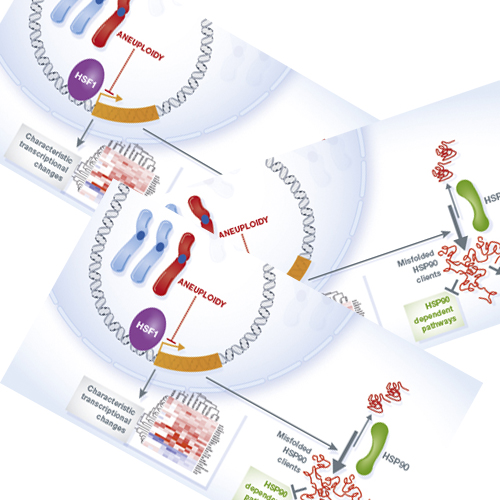HSF1 deficiency and impaired HSP90-dependent protein folding are hallmarks of aneuploid human cells
16-Oct-2014
The EMBO Journal, 2014, DOI: 10.15252/embj.201488648, Volume 33, Issue 20, pages 2374–2387 published on 16.10.2014
The Embo Journal, online article
The Embo Journal, online article
Aneuploidy is a hallmark of cancer and is associated with malignancy and poor prognosis. Recent studies have revealed that aneuploidy inhibits proliferation, causes distinct alterations in the transcriptome and proteome and disturbs cellular proteostasis. However, the molecular mechanisms underlying the changes in gene expression and the impairment of proteostasis are not understood. Here, we report that human aneuploid cells are impaired in HSP90-mediated protein folding. We show that aneuploidy impairs induction of the heat shock response suggesting that the activity of the transcription factor heat shock factor 1 (HSF1) is compromised. Indeed, increased levels of HSF1 counteract the effects of aneuploidy on HSP90 expression and protein folding, identifying HSF1 overexpression as the first aneuploidy-tolerating mutation in human cells. Thus, impaired HSF1 activity emerges as a critical factor underlying the phenotypes linked to aneuploidy. Finally, we demonstrate that deficient protein folding capacity directly shapes gene expression in aneuploid cells. Our study provides mechanistic insight into the causes of the disturbed proteostasis in aneuploids and deepens our understanding of the role of HSF1 in cytoprotection and carcinogenesis.











